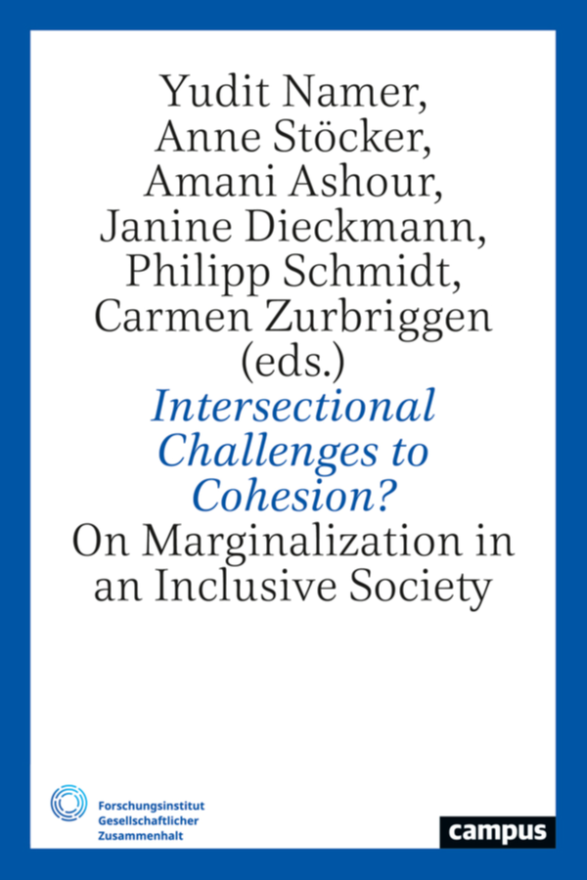Intersectional Challenges to Social Cohesion: The Reciprocal Drive to Specify Research Terms
Abstract

This concluding chapter turns to the perspective of philosophy of science and critical theory of the social order to reflect on intersectional challenges to social cohesion in theoretical terms. It outlines controversies in current intersectionality research and considers materialist critiques of intersectionality that share with intersectionality research the goal of social justice. Including elements of a brief history of the term intersectionality, the chapter proposes to distinguish between different understandings of the concept while also considering overlaps. The bulk of the chapter discusses three intersectional challenges to social cohesion scholarship and formulates three proposals. First, it is necessary to differentiate the terms group, community, and society when thinking about social cohesion. Second, intersectionality research needs to understand that asking about the construction of identity and the constitution of the subject refers to different levels of analysis and to different epistemologies. Furthermore, intersectionality as a traveling theory needs to be adjusted to different local and historical constellations. Third and finally, analyzing the intersectionality of ideologies can help social cohesion research in its aim of contributing to a cohesive society.
Quellen
Buchholz, Vivian. 2024. Intersectional Challenges to Social Cohesion: The Reciprocal Drive to Specify Research Terms. In: Intersectional Challenges to Cohesion? On Marginalization in an Inclusive Society, hg. von Yudit Namer, Anne Stöcker, Amani Ashour, Janine Dieckmann, Philipp Schmidt und Carmen Zurbriggen, 199–219. 1. Aufl. Gesellschaftlicher Zusammenhalt 7. Frankfurt: Campus, 19.06.2024. url: https://www.campus.de/buecher-campus-verlag/wissenschaft/soziologie/intersectional_challenges_to_cohesion-17944.html.
